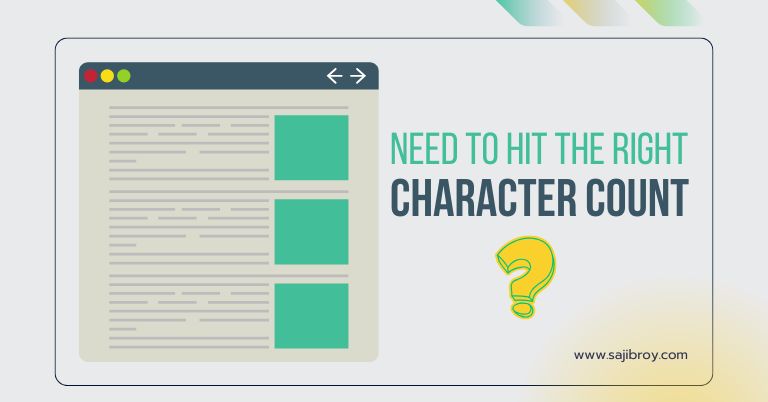The psychology of hotel website design and SEO plays a crucial role in converting visitors into guests. By understanding consumer psychology and utilizing effective design strategies, hotels can enhance user experience, build trust, and ultimately drive bookings.
Color psychology, website content, and a user-friendly interface are just a few key elements that can influence the behavior of travelers landing on a hotel website. Additionally, implementing SEO techniques can improve visibility in search engine results and attract more organic traffic.
Overall, by incorporating psychological principles into website design and optimizing search engines, hotels can increase their chances of converting website visitors into loyal guests.
Let's See the Topic Overview
The Importance Of Hotel Website Design
HTML Format for WordPress
When it comes to attracting and converting visitors into guests, the design of your hotel website plays a crucial role. A well-designed website not only creates a positive first impression but also enhances the overall user experience. In this article, we will explore the psychology behind hotel website design and how it can effectively convert visitors into guests.
The role of website design in attracting and converting visitors
Your hotel website design serves as the first point of contact between potential guests and your property. It is the digital representation of your brand and sets the tone for their entire experience. Visitors will form an immediate perception of your hotel based on the design elements they encounter. If your website is visually appealing and user-friendly, it will attract and engage visitors, encouraging them to explore further and ultimately make a booking.
How a well-designed website can create a positive first impression
A well-designed hotel website can create a positive first impression, influencing visitors to form a favorable opinion about your property. Visual elements such as high-quality images, videos, and a clean layout contribute to the overall aesthetic appeal. Colors and fonts play a vital role in conveying your brand’s personality and evoking emotional responses. By using appropriate color schemes and fonts that align with your hotel’s identity, you can create a cohesive and visually pleasing website that leaves a lasting impression on visitors.
The impact of visual elements, colors, and fonts on user experience
Visual elements, colors, and fonts are crucial in shaping the user experience of your hotel website. Images and videos can showcase your property’s amenities, rooms, and location, giving potential guests a clear idea of what to expect. Colors can evoke certain emotions and establish a specific ambiance, such as warm colors creating a cozy and inviting atmosphere, while cool colors promoting a sense of calmness and relaxation. Fonts, on the other hand, contribute to readability and reflect the overall tone of your brand. By carefully selecting and using these elements, you can enhance user experience and make your website more appealing and memorable.
The design of your hotel website is of utmost importance when it comes to attracting and converting visitors into guests. By understanding the psychology behind website design and utilizing visual elements, colors, and fonts strategically, you can create a compelling and user-friendly website that entices visitors to become paying guests.
Understanding Visitor Psychology
Understanding the psychology behind user behavior on hotel websites is crucial in designing an effective website that converts visitors into guests. By delving into the subconscious mind of users, we can gain valuable insights into how they make decisions and choices on these websites.
The psychology behind user behavior on hotel websites
When users land on a hotel website, they are looking for specific information that will help them make a decision. Understanding their thought process and behavior can guide us in creating a user-friendly and persuasive website.
Users are often driven by their emotions when browsing hotel websites. They seek a sense of trust and reassurance, looking for cues that indicate a positive experience. This can be achieved through visually appealing images, testimonials from satisfied guests, and clear descriptions of amenities and services.
In addition to emotions, cognitive biases play a significant role in user actions on hotel websites. These biases, such as confirmation bias and social proof, can be leveraged to influence decision-making. By strategically placing positive reviews and highlighting popular features, we can guide users towards booking a stay.
How users make decisions and choices on hotel websites
Users go through a decision-making process when exploring hotel websites. It’s essential to understand this process and tailor our website design accordingly.
Typically, users start by evaluating the overall appeal of the website. A clean and intuitive layout, with easy navigation and quick loading times, creates a positive first impression. This sets the foundation for a seamless user experience.
Next, users seek information about the hotel, including room types, amenities, and location. Providing detailed descriptions, high-resolution images, and interactive maps can satisfy their curiosity and enhance their decision-making process.
Users also consider factors such as pricing, availability, and reviews. Clear and transparent pricing, accompanied by enticing offers or promotions, can positively influence their choices. Availability indicators and real-time booking options create a sense of urgency, nudging users to make a reservation.
The influence of emotions and cognitive biases on user actions
Emotions and cognitive biases have a significant impact on user actions on hotel websites. By understanding these influences, we can optimize our website to evoke positive emotions and leverage biases in our favor.
Appealing to users’ emotions can be achieved through persuasive language, engaging storytelling, and visually stimulating content. By creating an emotional connection with potential guests, we can increase their likelihood of converting into actual bookings.
Cognitive biases, such as scarcity and social proof, can be harnessed to create a sense of urgency and trust. Promoting limited availability or displaying the number of bookings made in real time can motivate users to take action. Additionally, showcasing positive reviews and testimonials can help overcome any doubts or hesitations they may have.
Understanding visitor psychology is key to designing a hotel website that converts visitors into guests. By tapping into their emotions, addressing their cognitive biases, and streamlining their decision-making process, we can create a compelling and user-oriented website that maximizes conversions.
Incorporating User-Friendly Features
The importance of intuitive navigation and user-friendly interface design
Intuitive navigation and user-friendly interface design are crucial elements of effective hotel website design. When visitors land on your website, they should be able to easily find the information they are looking for and navigate through different pages seamlessly. A cluttered or confusing layout can be frustrating for users and may lead them to leave your site.
One way to ensure intuitive navigation is to organize your website’s menu in a logical manner. Use clear and descriptive labels for each menu item, avoiding jargon or industry-specific terms that may confuse users. Additionally, consider implementing a search bar on your website so that users can quickly find specific information or amenities.
Another aspect of user-friendly interface design is the use of clear and concise headings and subheadings. This helps users scan the content and find the information they need more easily. Use consistent formatting for headings and subheadings throughout your website to provide a cohesive and organized user experience.
Optimizing website load speed for a better user experience
Website load speed is a critical factor in user experience. When a website takes too long to load, visitors are more likely to leave and seek information or accommodations elsewhere. According to research, a delay of just one second in page load time can result in a 7% reduction in conversions.
To optimize website load speed, consider implementing the following strategies:
- Optimize image file sizes by compressing them.
- Minify CSS and JavaScript files to reduce their file sizes.
- Enable browser caching to store certain website elements locally, reducing the need for repeated downloads.
- Choose a reliable web hosting provider with fast server response times.
Regularly monitoring and testing your website’s load speed is important to identify any potential bottlenecks and make necessary adjustments. Providing a fast and seamless user experience can significantly improve your website’s conversion rate.
Using responsive design and mobile optimization to cater to different devices
In today’s digital landscape, it’s imperative for hotel websites to be optimized for mobile devices. With the increasing number of users accessing the internet via smartphones and tablets, having a responsive design ensures that your website looks and functions well on screens of all sizes.
Responsive design allows your website to adapt to different devices, automatically adjusting layout, font sizes, and images to provide an optimal user experience. This eliminates the need for users to zoom in or scroll horizontally to view content, making navigation easier and more enjoyable.
Mobile optimization goes beyond responsive design and involves optimizing your website specifically for mobile devices. This includes simplifying navigation menus, ensuring fast load times on mobile networks, and making important information easily accessible on smaller screens.
By incorporating user-friendly features such as intuitive navigation, optimized load speed, and responsive design, your hotel website can effectively convert visitors into guests. Prioritizing the user experience and creating a seamless journey from browsing to booking will help you attract and retain more guests, ultimately boosting your hotel’s success.
Enhancing Trust And Credibility
Building trust through authentic and relevant content
One of the most effective ways to enhance trust and credibility on your hotel website is through the use of authentic and relevant content. When visitors come to your website, they are looking for information that is accurate, up-to-date, and trustworthy. By providing them with valuable content that is relevant to their needs, you are establishing yourself as an authority in the industry.
To build trust through authentic and relevant content, make sure to:
- Create informative blog posts and articles that provide valuable insights and tips for travelers.
- Share authentic stories and experiences from previous guests, showcasing the unique features and amenities of your hotel.
- Include detailed information about your hotel’s location, services, and facilities, so potential guests have a clear understanding of what to expect.
- Use high-quality images and videos that showcase the ambiance and atmosphere of your hotel.
- Provide accurate and transparent pricing information, so visitors know exactly what to expect when booking.
By consistently delivering authentic and relevant content, you are building trust with your website visitors and increasing the likelihood of converting them into guests.
Displaying customer testimonials and reviews
Another powerful way to enhance trust and credibility on your hotel website is by displaying customer testimonials and reviews. In today’s digital age, potential guests place a high value on the experiences and opinions of others when making their travel decisions.
To effectively display customer testimonials and reviews, consider the following:
- Collect feedback from previous guests and showcase their testimonials prominently on your website.
- Include a rating or review system that allows visitors to leave feedback and read reviews from other guests.
- Showcase positive reviews and highlight specific features or experiences that previous guests have enjoyed.
- Respond to both positive and negative reviews in a timely and professional manner, showing that you value guest feedback and are committed to providing exceptional service.
By displaying customer testimonials and reviews, you are showing potential guests that your hotel is trusted and recommended by others, further enhancing trust and credibility.
Implementing secure payment options for online bookings
When it comes to online bookings, security is a top concern for potential guests. To enhance trust and credibility, it is crucial to implement secure payment options on your hotel website.
To ensure secure online bookings, consider the following:
- Use SSL certificates to encrypt sensitive customer data, providing a secure connection between your website and the user’s browser.
- Clearly state the security measures you have in place to protect customer information, such as secure servers and data encryption.
- Offer multiple secure payment options, such as credit cards, PayPal, or other trusted payment gateways.
- Showcase security logos or badges from trusted third-party providers to further enhance confidence in the booking process.
By implementing secure payment options, you are providing peace of mind to potential guests and reassuring them that their personal information is safe when booking with your hotel.
Optimizing For Search Engines
Understanding the basics of SEO for hotel websites
When it comes to optimizing hotel websites for search engines, understanding the basics of SEO is crucial. Search engine optimization involves various techniques that help your website rank higher on search engine results pages (SERPs) and attract more organic traffic. By implementing SEO strategies, you can increase your website’s visibility and improve its chances of converting visitors into guests.
Choosing relevant keywords and optimizing meta tags and descriptions
One of the essential aspects of hotel website SEO is keyword research. By identifying relevant keywords that your target audience is using to search for hotels, you can optimize your website’s content, meta tags, and descriptions accordingly. Incorporating these keywords strategically throughout your website’s content will help search engines understand what your website is about and rank it higher for relevant search queries.
In addition to keywords, optimizing meta tags and descriptions is crucial for attracting organic traffic. Meta tags, such as title tags and meta descriptions, provide concise summaries of your web page’s content. By optimizing these tags with relevant keywords and compelling descriptions, you can improve your website’s visibility on SERPs and entice users to click through to your site.
Using structured data markup for better visibility on search engine results pages
Structured data markup plays a vital role in enhancing your website’s visibility on search engine results pages. This markup helps search engines understand the content and context of your website’s information, enabling them to display rich snippets in search results. Rich snippets, such as star ratings, reviews, and pricing information, provide users with additional details about your hotel, making your listing more enticing and increasing the likelihood of clicks and conversions.
Implementing structured data markup can be done through HTML or JavaScript code, depending on your website’s technical capabilities. It’s essential to follow the guidelines provided by search engines, such as Google’s structured data documentation, to ensure your markup is valid and effective.
Conclusion
Effective hotel website design and SEO strategies are essential for converting visitors into guests. By understanding the psychology behind consumer behavior, hotels can create impactful designs that drive conversions. Color psychology, emotional impacts, and answering potential guests’ questions are all key factors in successful hotel website content.
Websites provide a platform for hotels to showcase their amenities and answer basic inquiries, ultimately influencing guests’ decision-making process. By implementing SEO techniques and focusing on user experience, hotels can increase web traffic and drive more bookings. Overall, a well-designed and optimized hotel website can significantly impact guest conversions and ultimately drive business success.












